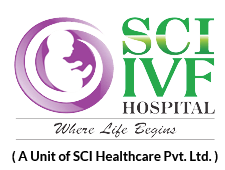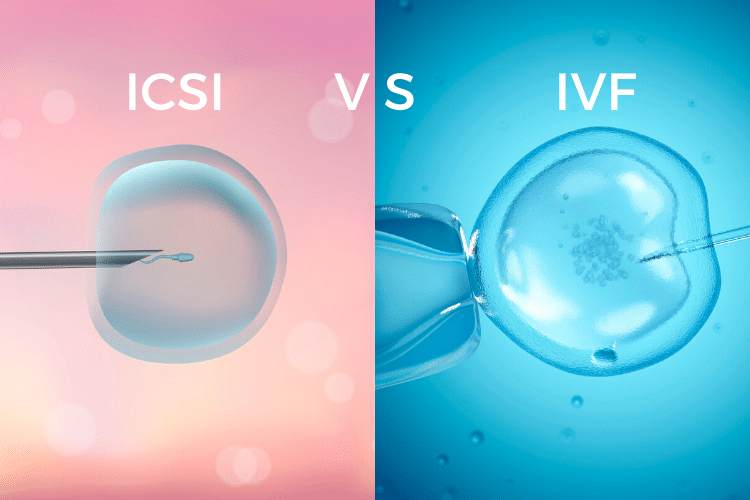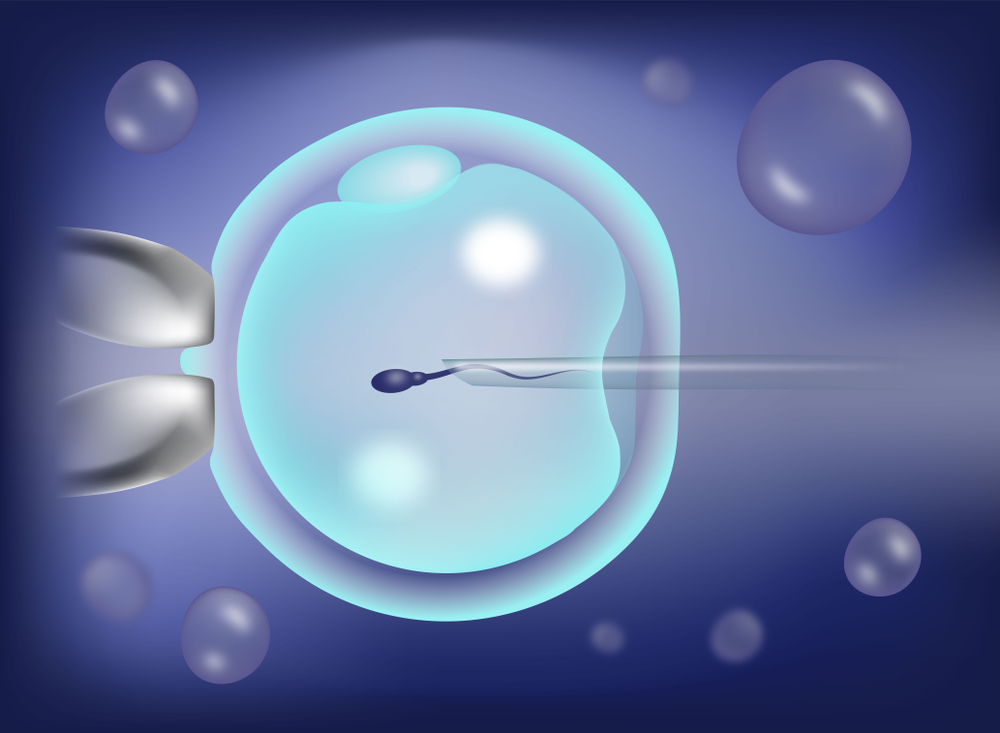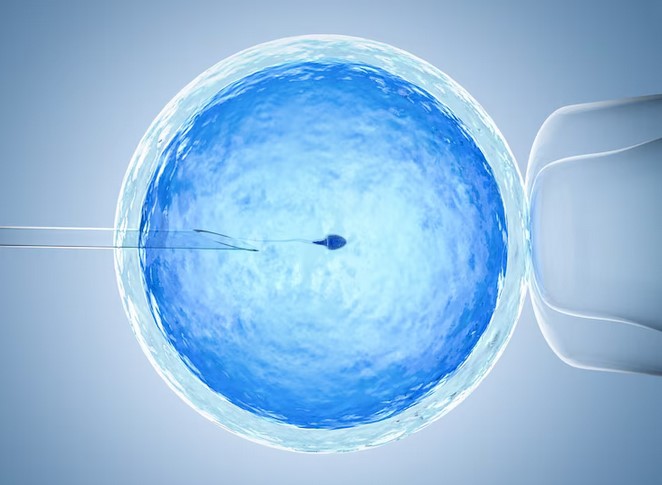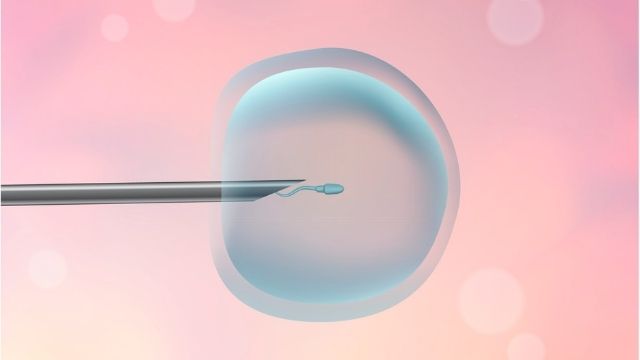ICSI Treatment is one of the most popular techniques for fertility treatment. ICSI Treatment is done best in SCIIVF by doctors with decades of experience.
What is ICSI Treatment?
It is a test-tube fertilization procedure in which a sperm is injected directly into an egg to achieve fertilization. ICSI is done for male infertility.
What is the difference between ICSI and IVF?
Intracytoplasmic sperm injection (ICSI) differs from conventional in-vitro fertilization (IVF) in that the embryologists select a single sperm to be injected directly into an egg, instead of fertilization taking place in a dish where many sperm are placed near an egg.
Who should be treated with ICSI?
ICSI is mainly done for male infertility. You are recommended ICSI if-
- You have a very low sperm count.
- Other problems with the sperm have been identified, such as poor morphology (abnormal shape ) or poor motility (not moving normally)
- You need sperm to be collected surgically from the testicles or epididymis; for example because you have had a vasectomy, you do not ejaculate sperm because you have extremely low sperm production.
- During previous attempts at IVF, there was the failure of fertilization or an unexpectedly low fertilization rate.
- You are using embryo testing.
- You are using frozen sperm in your treatment which is not of optimum quality.
What are the common reasons used for performing ICSI? ICSI is the latest of several micro-fertilization techniques that have been utilized predominately to overcome severe male subfertility, giving fertilization and term pregnancy rates similar to conventional in-vitro fertilization.
- Absolute indication include
- Use of epididymal or testicular sperm samples.
- High titers of anti-sperm antibodies.
- When only acrosomeless or immotile spermatozoa are avoidable.
- Fertilization of oocytes prior to preimplantation genetic diagnosis. For women-Women are given fertility drugs to stimulate ovaries and produce more eggs; as for IVF and progress is monitored through vaginal ultrasound scans and possibly blood tests
- For men-The, embryologists will examine the sperm under a microscope and decide whether ICSI could increase the chances of fathering a baby.
- The eggs are then collecte4d using the same procedure as IVF and each egg is injected with a single from the partner or donor. The rest of the procedure is the same as IVF.
- ICSI Treatment-
- Pre-treatment- Before your treatment starts, you will need to example various consent forms and may need to undergo various blood tests to screen for HIV, hepatitis B and C, and HTLV virus.
How is ICSI treatment carried out?
The next step depends on whether you are able to provide sperm without a medical procedure: –
- If you can, you produce a fresh sperm sample on the same day as your partner’s eggs are collected.
- Sperm can be collected directly from the epididymis using a type of fine syringe. This is known as PESA.
- Sperm can also be retrieved from the testicles, a process known as TESA.
- It is also possible to remove tiny quantities of testicular tissue from which sperm can be extracted. This procedure is called TESE.
- If you have stored sperm, it will be removed from frozen storage, thawed, and prepared.
- A single is then injected into each egg.
Finally, if fertilization does take place; the embryo will be cultured in the laboratory for up to six days and then between one and three of the best quality embryos will be transferred to the womb.
What are the advantages of ICSI treatment?
- ICSI is a procedure that effectively eliminates male infertility by introducing sperm cells directly into an egg.
- ICSI is the perfect solution to the main causes of male infertility like low sperm count, poor motility, and poor sperm shape.
- ICSI benefits extend beyond just acting as a treatment for male infertility; but also for anyone who is paralyzed or has had an irreversible vasectomy.
- It is an option for couples who have tried and failed at standard IVF treatment.
What are the disadvantages of ICSI treatment?
ICSI’S method of directly introducing sperm into an egg defeats the natural process of only a select few sperm making it to and fertilizing an egg. This can be a disadvantage because the selection process is a natural way of making sure that the best sperm, with the best genetic material, are the ones with the best chance of fertilizing the egg. Removing that selection process can lead to an increased risk of developmental and health issues for ICSI children; as well as higher health risks of miscarriage because of the poor genetic material involved.
- Women 35-37 yr : 42%
- Women 41-42 yr : 20.4 %
One cycle of ICSI takes between four-six weeks to complete. –
Embryo may be transferred in two to three days after fertilization, or five days after fertilization. Five days after fertilization the embryo will be at the blastocyst stage.
What is the cost of ICSI Treatment?
It can cost around RS 45000/- to Rs. 60000/-.
What are the fertilization and pregnancy success rate of ICSI Treatment?
ICSI often boosts in-vitro fertilization (IVF) success rates for coup[les dealing with male infertility.
ICSI Treatment success rates for live birth:-
Given below are birth rates, grouped by mother’s age, for couples that underwent an embryo transfer and had a diagnosis of male infertility.
- Women under 35: 48.3 %
- Women 35-37 yr : 42%
- Women 38-40 yr : 29.8%
- Women 41-42 yr : 20.4 %
- Over age 42 yr : 7%
One key to ICSI’s success is that ICSI improves the odds of fertilization.
Approximately 50 to 80% of eggs are fertilized during the ICSI procedure.
How many days rest required after ICSI Treatment?
Embryo may be transferred in two to three days after fertilization, or five days after fertilization. Five days after fertilization the embryo will be at the blastocyst stage.
One cycle of ICSI takes between four -six weeks to complete.
For Further Information on ICSI Treatment in Delhi you contact :
Dr. Shivani Sachdev Gour at :
011-41041131/9999664422,
Email # info@sciivf.com
OR
you may provide your details, we will reach you:
Error: Contact form not found.
–
